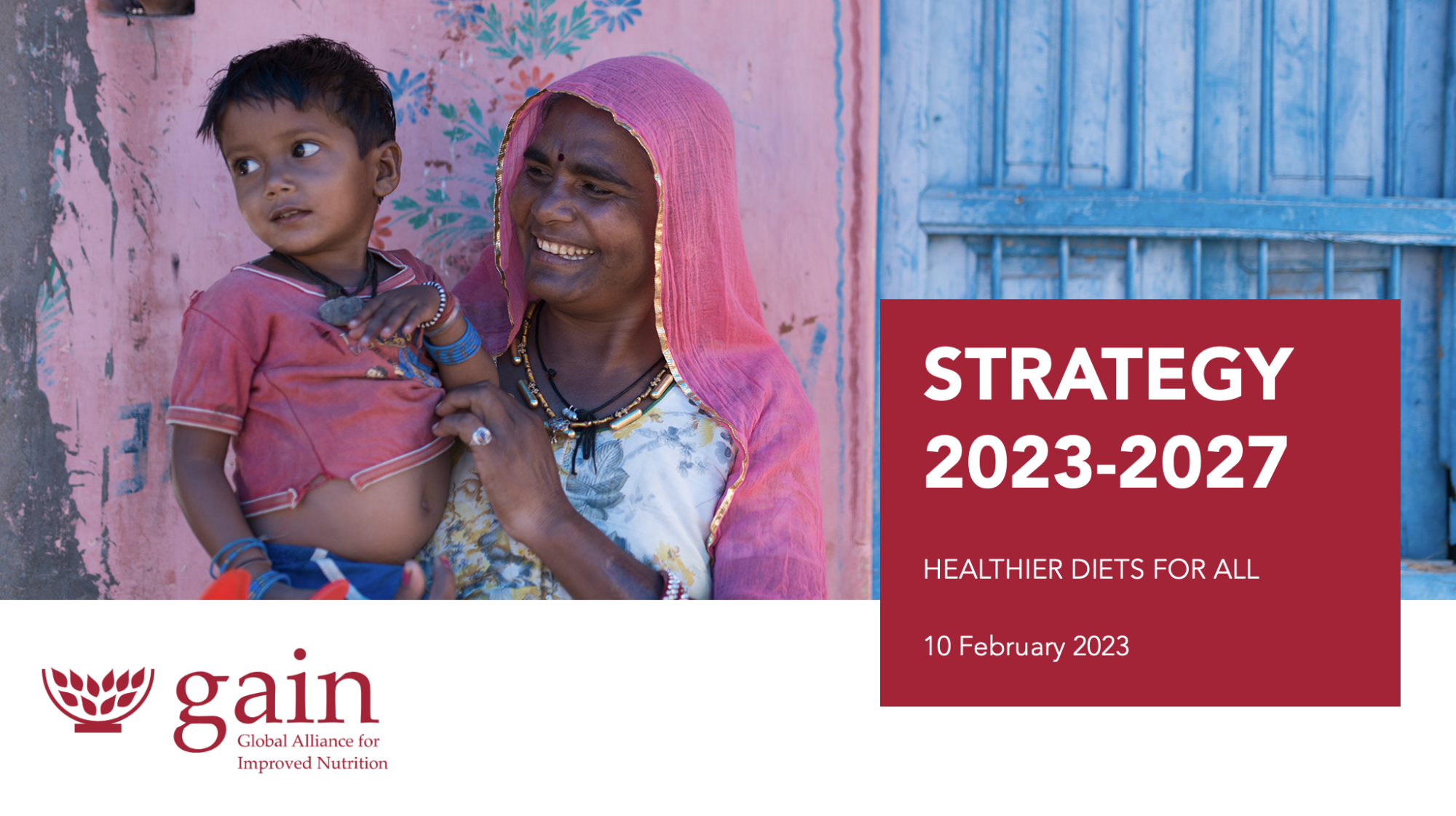So what is GAIN doing about this? Get a sneak peek into the Global Alliance for Improved Nutrition’s new 5-year strategy which aims to amplify the growing urgency and awareness of the importance of transforming our food systems to tackle both human development and planetary needs. Climate change, COVID-19 and namely the current war in Ukraine have all combined devastating effects on people. The most vulnerable (wherever they are) are bearing the brunt of these crisis and therefore this new strategy aims to reflect these challenges and improve the access of 1.5 billion people to healthier diets.
Key facts & figures
- 3 billion cannot afford a healthy diet (80% of Africans) (SOFI 2022)
- 3-4 billion suffering from micronutrient deficiencies (new estimates in Lancet Global Health from GAIN)
- Projected COVID impacts on wasting +10m and stunting + 2-3m (estimates facilitated by GAIN in Nature Food)
What Lawrence and GAIN aim to achieve
The three C’s: climate, covid and conflict are creating havoc in terms of hunger and malnutrition. A lack of consistent access to safe and nutritious food diminishes dietary quality, resulting in negative consequences for nutrition and overall well-being, in turn causing long-term damage to individuals, communities, and societies.
It is very clear we cannot address climate change without addressing food system transformation. Malnutrition and hunger are perhaps the world’s most pressing issues. Millions of people, living in Sub-Saharan Africa, South Asia and Central America, will be at risk of malnutrition and hunger by 2050 if we don’t adapt to the effects of climate change. The production, distribution, and consumption of our food are all major contributors to increasing greenhouse gases, water usage and deforestation, to cite only three impacts. We need to reduce these impacts.
GAIN will focus on protecting the most vulnerable from shocks and target our efforts more internationally to individuals living on $3.2 or less per day. Food systems need to become more diverse and locally sustainable to be safer and more resilient to shocks while reaching the most vulnerable.
Please find all the presentations HERE.

